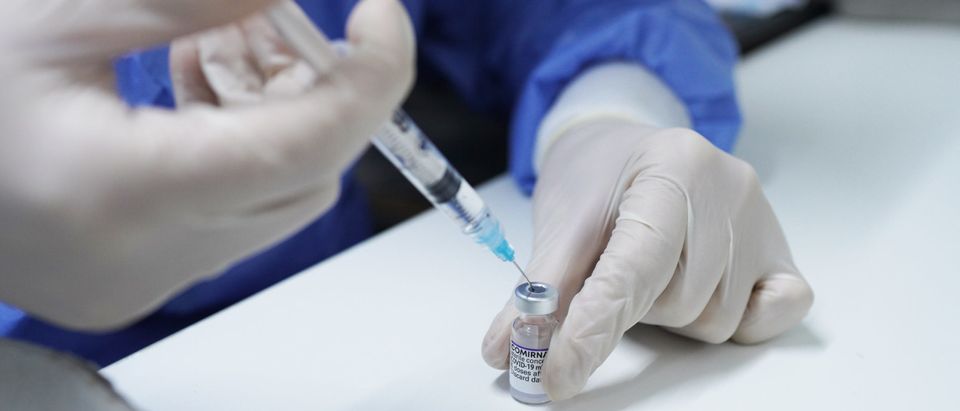Many of America’s leading vaccine experts are questioning just how helpful booster vaccines will be to people under age 65 or not otherwise at high-risk of a severe COVID-19 case.
The Centers for Disease Control and Prevention (CDC) officially recommended last week that Americans get boosters if they are aged 65 or older or are 18 or older and live in a long-term care facility, work in a high-risk occupation or have underlying health conditions. Some of the very officials at the CDC and the Food and Drug Administration (FDA) who were involved in the booster approval process, though, aren’t convinced that the extra shots are the way out of the pandemic.
NEW: The FDA and CDC have authorized booster shots for many Americans. But the recommendations — even those approved unanimously — mask significant dissent and disquiet among advisers to those agencies.https://t.co/4h6DlSPRsq
— Apoorva Mandavilli (@apoorva_nyc) October 25, 2021
“These are not evidence-based recommendations,” Dr. Sarah Long, a member of the CDC’s Advisory Committee on Immunization Practices (ACIP) and pediatric infectious disease expert at Drexel University College of Medicine told The New York Times. “We are in a very difficult position to do much of anything other than what everybody has already announced that we’ve done,” she added, apparently referencing the fact that the Biden administration announced boosters would be available before they were approved by health authorities.
“I don’t think that we have evidence that everybody in those groups needs a booster today,” said fellow ACIP member and senior investigator at Kaiser Permanente Colorado Dr. Matthew Daley. Daley and Long both voted in favor of the CDC’s recommendation.
The ACIP only narrowly passed a recommendation for Americans aged 18-49 with underlying health conditions, and did not pass a recommendation for individuals in high-risk occupations, but CDC director Rochelle Walensky overruled the panel with her final recommendation.
“You can see the hesitancy in all this,” Dr. Paul Offit, a member of the FDA’s Vaccines and Related Biological Products Advisory Committee (VRBPAC) and director of the Vaccine Education Center at Children’s Hospital of Philadelphia told the NYT. “It’s because in our hearts, I think people don’t quite agree with this notion of a booster dose.”
“The door just got bigger and bigger and bigger, it got wider and wider with each step,” he continued. “The companies got what they wanted, the administration got what they wanted.
Scientists and doctors who spoke to the NYT and reviewed data submitted to the FDA and CDC panels suggested that, because the original vaccines aren’t significantly waning in efficacy, boosters may not be widely needed outside particular circumstances.
“The problem that troubled me is that we don’t know if boosters are necessary,” Dr. Cody Meissner, a member of VRBPAC and professor of pediatrics at Tufts University School of Medicine told the NYT. (RELATED: Florida, CDC Failed To Publicly Release County COVID-19 Deaths For Over Three Months)
Others worry that pushing hard for boosters could undermine confidence in the vaccines and offer mixed messages. “They continue inadvertently to damn the vaccine, when what they should say is, ‘It is remarkable,’” Offit said. “It’s a miracle vaccine.”


